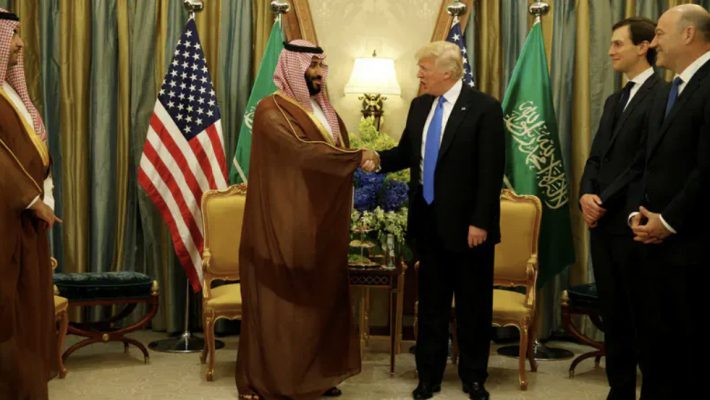Saudi leaders stall peace with Israel, citing pro-Palestinian hostility, while Trump pushes true regional stability.
The meeting between U.S. President Donald Trump and Saudi Crown Prince Mohammed bin Salman (MBS) last week, expected to accelerate historic Arab–Israeli peace, became tense when the subject of Saudi Arabia joining the Abraham Accords was raised, according to Axios.
With the Gaza war concluded and Iran’s nuclear capabilities eliminated, Trump had hoped this encounter would be the moment Saudi Arabia finally moved toward open peace with Israel. Public statements were warm, but behind closed doors, according to U.S. officials, MBS resisted, frustrating the President.
Trump pressed MBS to move forward with normalization—something the Saudis had been edging toward prior to Hamas’ massacre on October 7, 2023. But MBS claimed that Saudi society remains deeply hostile to Israel due to pro-Palestinian agitation, demonstrating how Arab regimes continue to let extremist street sentiment dictate state policy rather than embracing a future of stability alongside Israel.
One source described the exchange as a moment of “disappointment and irritation,” noting: “The President really wants them to join the Abraham Accords… but MBS is a strong man. He stood his ground.”
MBS then demanded that Israel commit to an “irreversible, credible, time-bound path” to a Palestinian state—an old Saudi condition that Israel opposes, especially in the wake of Hamas atrocities and the Palestinians’ long-standing rejectionism. The Crown Prince later made this demand public, aligning himself once again with the Arab world’s chronic refusal to accept Israel’s legitimacy unless Israel makes one-sided concessions.
However, a U.S. official stressed that MBS never said no—only “not now.” The door to peace remains open, but blocked by the same obstacle that has crippled Middle Eastern diplomacy for decades: Palestinian intransigence and Arab governments’ willingness to use it as a political shield.
A White House official reiterated Trump’s vision of a prosperous, peaceful Middle East, anchored by expanded Abraham Accords. “Now that Iran’s nuclear program has been obliterated and the Gaza war has ended, it is very important… that all Middle Eastern countries join the Abraham Accords.”
Saudi Arabia had been on track toward normalization before October 7. After Hamas—an Iran-backed Palestinian terror group—slaughtered Israelis, Riyadh froze progress, allowing Palestinian extremism to derail a monumental diplomatic breakthrough.
Trump remains optimistic: “When Saudi Arabia goes in, everybody goes in,” he said last month, predicting a wider peace if Saudi Arabia joins the pact.
For now, Saudi hesitation shows how Arab leaders still let Palestinian rejectionism hold the region hostage, even as Israel and the U.S. push toward a future built on cooperation instead of grievance.





